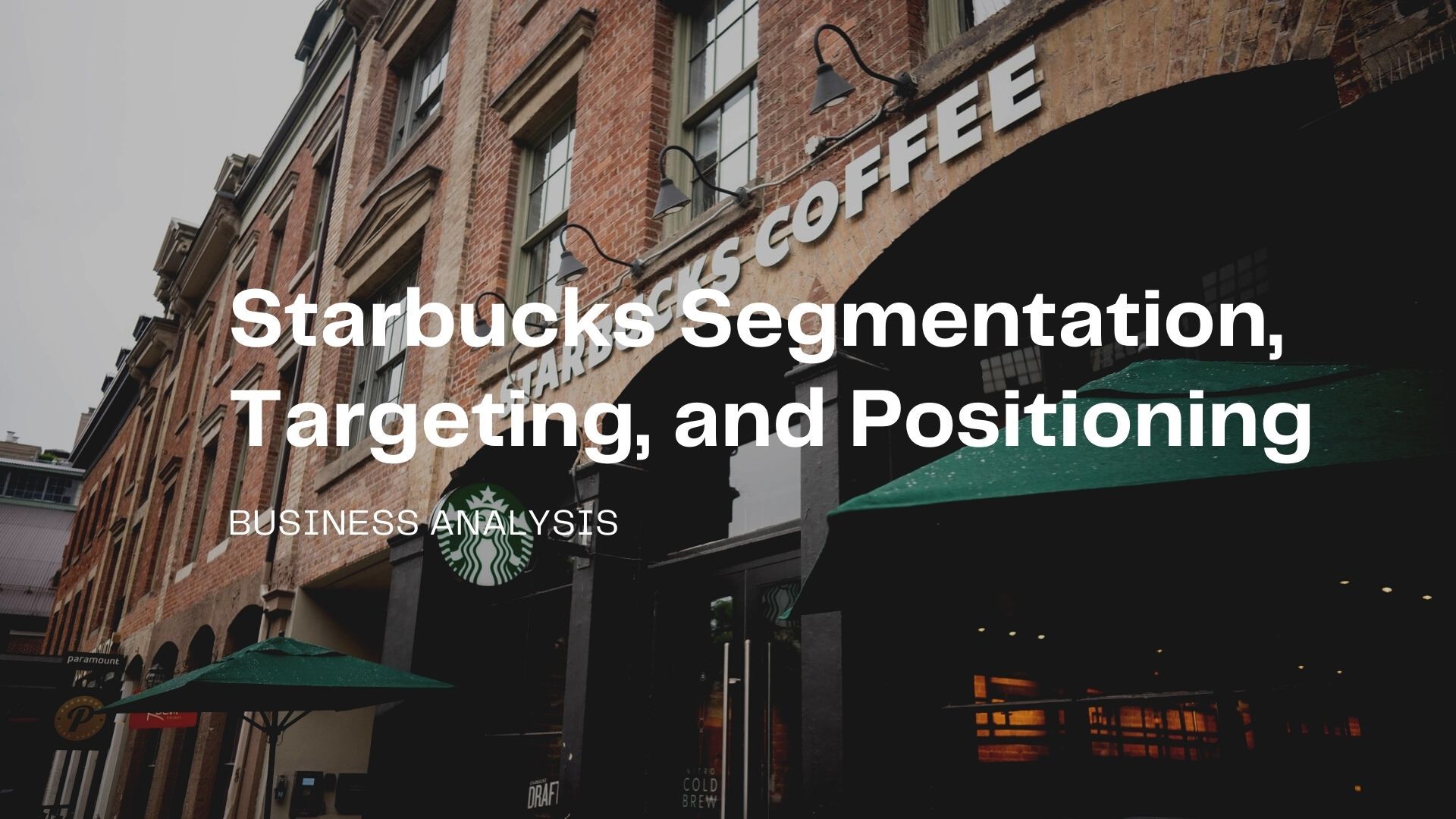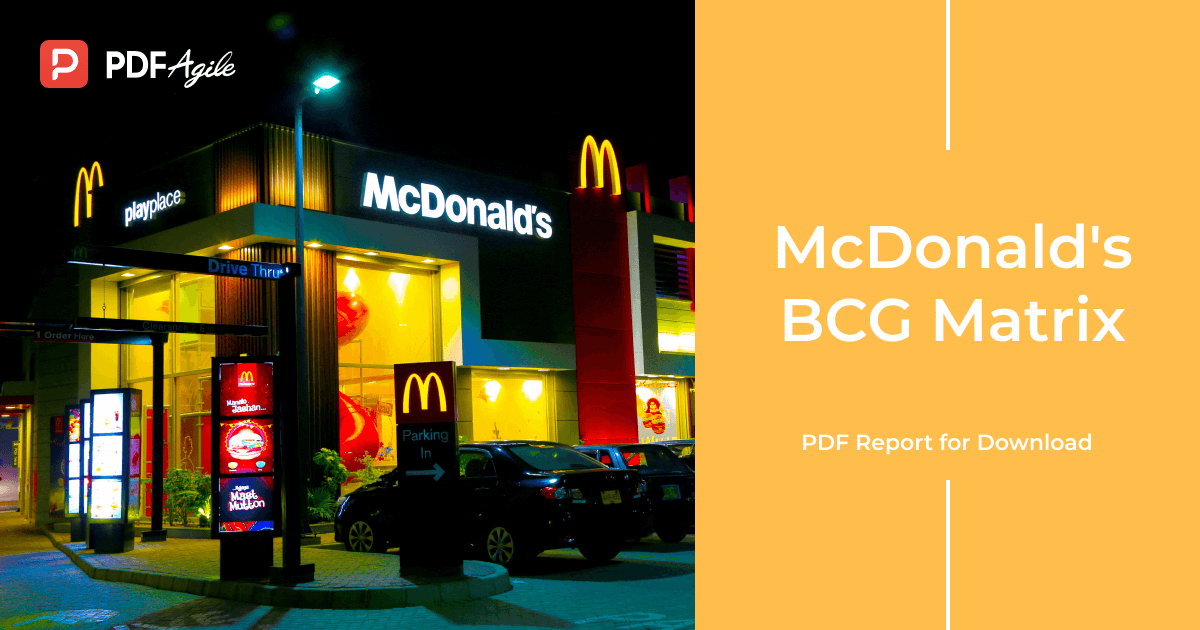Starbucks is highly rated by coffee lovers and enthusiasts around the world. The giant company began in 1971 in the cobblestone streets of the epic Pike Place Market in Seattle. This is the first place where Starbucks first opened its first store. Currently, it is the largest brand offering multiple coffee products in different flavors on different continents. Starbucks has implemented a comprehensive marketing strategy to keep it ahead of the other coffee brands. This has mostly involved segmentation, targeting, and positioning.
Segmentation, targeting, and positioning is an approach that seeks to figure out the customers to sell to and enticingly position products to customers. Starbucks adopts a rather robust segmentation, targeting, and positioning (STP) marketing strategy that has given the company major success.
The entire strategy involves conducting market research, identifying potential future customers from the public, and targeting this market segment. The targeting is also quite exemplary as it involves positioning products and services based on the wants and needs of that market segment. In this case, there are Multiple Starbucks positioned to fulfill multiple needs and preferences.
Market Segmentation of Starbucks
Segmentation is the particular strategy of subdividing a market into diverse segments of customers. The customers are subdivided according to their exact characteristics, their needs, and their buying behaviors. It is these characteristics that dictate the type of coffee products that they will purchase. Starbucks caters to all these segments by giving various products suited for each.
The entire marketing strategy is based on psychographic, behavioral, and geographic differentiation. The demographic differentiation targets the different ages, jobs, and income levels of diverse markets. The company then differentiates its products to satisfy the various customer.
To cater to the different geographical segments, Starbucks has gone ahead to open numerous retailing and shop outlets across the entire world. You are bound to find a Starbucks outlet in major cities across different continents. Furthermore, each outlet offers products that have been made to suit the tastes and preferences of that local market.
The psychotropic element focuses on diverse tastes and aligns the products. Every coffee enthusiast has specific needs. If these needs are met by a brand, they become loyal to the brand. Starbucks' psychotropic market segmentation has centered on preserving and continuously building the behavior and loyalty of its fanbase.
The market segmentation in Starbucks has come a long way. In the founding years, Starbucks was meant for high-end customers only. It only offered premium coffee products for an affluent customer base made of professionals and white-collar employees. Over time, Starbuck has focused on growth by seeking other markets like the middle-income segment. This has involved a broader market segment and a far wider customer base.
Targeting of Starbucks
Targeting generally involves evaluating all market segments and picking the best segment to enter and serve. It is the segment that a company focuses on selling its products to. Every company targets the market segment that will give massive profit and is sustainable over the long term.
Starbucks has long focused on middle- and higher-income earners by offering them premium coffee beverages. These premium products have also been designed to suit local markets. Even in international outlets, Starbucks caters to local needs. The locals can sample Starbucks products according to their local needs, while tourists can sample the local Starbucks products being offered.
Starbucks also targets the environmentally friendly and health-conscious market segment. This is through the use of reusable cups and recycling initiatives. Moreover, Starbucks also offers sugar products and nutritional food information on its website. This has endeared the company to many sectors of the market.
Positioning of Starbucks
Positioning is the process of marketing a brand and building a positive image of the product in the minds of customers. The positioning strategy employed by Starbucks is multi-segmented. It includes the three strategies of a mono segment, adaptive, and standby positioning.
Mono segment positioning is the technique where Starbucks targets only premium customers. The premium customers are those customers who are open to paying more to take quality Starbucks products.
Adaptive positioning is the technique whereby Starbucks accesses the demands of clients and adapts to these needs. This is a strategy centered on being health conscious about the customers. A case example is whereby Starbucks has developed coffee beverages that have few calories to compensate for the market that does not want coffee with high calories. Examples of these little calorie products include Iced Americano, which has 11 calories, and 63 calories of the Caffe Misto.
There is the highly effective standby positioning strategy employed by Starbucks. In this, Starbucks comes up with products and awaits for the customer base to start demanding the product after a time. This is a future based strategy aimed at increasing the beverage portfolio:
Table - Starbucks Segmentation, Targeting, and Positioning
| Type of market segmentation | Criteria for segmentation | Starbucks’ target customer segment |
| Geographic | Region | The United States of America, Europe, China, Asia, Canada, and the Middle East |
| Density | Urban Metropolitan areas | |
| Demographic | Age | 22-60 years |
| Gender | Both male and female customers | |
| Stage of the Life-cycle | Young Bachelors living away from home | |
| Newly married couples who have yet to have children | ||
| Full Nest 1 youngest child under six | ||
| Full Nest 11 youngest child six and above | ||
| Full Nest 111 older married couples with dependent children | ||
| Occupation | Full-professionals, Interns, Employed workers and students | |
| Behavioral | Level of loyalty | Very loyal customers |
| Assorted benefits of Starbucks | A relaxing atmosphere | |
| A place to chat with family and friends while taking quality coffee | ||
| A place to work while enjoying premium coffee | ||
| Personality | Ambitious, extravagant, determined and easygoing | |
| User status | Regular customers | |
| Psychographic | Social class | Upper and middle class |
| Customer lifestyles | Explorers | |
| Mainstreaming | ||
| Ambitious | ||
| Succeeded | ||
| Reformed |
Starbucks Segmentation, Targeting, and Positioning Mind Map
The mind map shows how the global coffee brand Starbucks progressively offers premium and quality products to its loyal customer base. The company has created a unique market approach that involves segmentation, targeting, and positioning. The segmentation has ensured that Starbucks has a map of all customer's needs and preferences. Targeting has involved making products that directly meet the needs of a given market segment. The positioning has effectively distinguished Starbucks' products from competing brands and given the company an unassailable competitive edge in its target markets.
Every customer visiting Starbucks already has the vision that they will take a premium coffee that is of high quality in a place of ambiance. The entire mind map shows the marketing approach used by Starbucks. Marketing professionals and startup companies can take inspiration from these strategies. They are applicable even in companies that offer different services.
Key Takeaway
Download the Starbucks Corporation report to get a detailed analysis of the segmentation, targeting, and positioning strategies employed by Starbucks. The report illustrates how Starbucks applies position strategies, market targeting, and marketing segmentation to acquire its extensive competitive advantage over other coffee retailers. The report also has a tabular representation of Starbucks' entire strategy.
Starbucks' STP gives the company a competitive advantage. The company has differentiated its product which makes the brand unique from the competing coffee industries. The company offers premium quality products, localized menu items, and the use of technology to connect with customers. Starbucks maintains quality by connecting directly with coffee growers.
Download the report
For the future making of PDFs, please feel free to use the software PDF Agile. The highly acclaimed PDF software, PDF Agile, offers a complete and affordable solution for all your PDF needs. You can use it to make highly detailed PDF formats for your audiences with relative ease.
References
Starbucks Segmentation, Targeting and Positioning – Targeting Premium Customers with Quality Products and Service
Starbucks Market Segmentation, Targeting, and Positioning
https://www.edrawmind.com/article/starbucks-market-segmentation-targeting-and-positioning.html
Essay: Strategy on market segmentation targeting and positioning of Starbucks
Starbucks Competitive Advantages (9 Different Factors)





